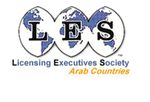Difference between revisions of "LES-AC"
| (One intermediate revision by the same user not shown) | |||
| Line 2: | Line 2: | ||
| logo = LES.JPG | | logo = LES.JPG | ||
| type = Non-Profit | | type = Non-Profit | ||
| − | | industry = Licensing & | + | | industry = Licensing & Technology Transfer |
| founded = 1997 | | founded = 1997 | ||
| founders = | | founders = | ||
| − | | ownership = | + | | ownership = [[TAG-org]] |
| headquarters = Shmeisany, Amman | | headquarters = Shmeisany, Amman | ||
| country = Jordan | | country = Jordan | ||
| Line 19: | Line 19: | ||
| keypeople = [[Talal Abu-Ghazaleh]], President<br>[[Mohammad Alem]], Executive Vice-President <br>[[Mohammad Al-Ansari]], Vice-President <br>[[Nabil Salame]], Vice-President International | | keypeople = [[Talal Abu-Ghazaleh]], President<br>[[Mohammad Alem]], Executive Vice-President <br>[[Mohammad Al-Ansari]], Vice-President <br>[[Nabil Salame]], Vice-President International | ||
}} | }} | ||
| + | |||
'''Licensing Executives Society-Arab Countries''' ('''LES-AC''') is a non-profit organization composed of professionals, experts, or those otherwise interested in the field of Licensing, Technology Transfers, and Research and Development within the Arab region. | '''Licensing Executives Society-Arab Countries''' ('''LES-AC''') is a non-profit organization composed of professionals, experts, or those otherwise interested in the field of Licensing, Technology Transfers, and Research and Development within the Arab region. | ||
==Background== | ==Background== | ||
Latest revision as of 01:18, 12 October 2012
| Type: | Non-Profit |
| Industry: | Licensing & Technology Transfer |
| Founded: | 1997 |
| Ownership: | TAG-org |
| Headquarters: | Shmeisany, Amman |
| Country: | Jordan |
| Website: | lesarab.org |
| Key People | |
| Talal Abu-Ghazaleh, President Mohammad Alem, Executive Vice-President Mohammad Al-Ansari, Vice-President Nabil Salame, Vice-President International | |
Licensing Executives Society-Arab Countries (LES-AC) is a non-profit organization composed of professionals, experts, or those otherwise interested in the field of Licensing, Technology Transfers, and Research and Development within the Arab region.
Background
LES-AC was first founded in 1997 under name "Arab Licensing and Technology Transfer Society (ALTTS) to provide technical assistance in the field of licensing and technology transfer to entities in Arab countries. The society participated in the 1998 Annual Meeting of the Licensing Executives Society International (LESI) in Miami, USA to acquire international recognition. The name of the society was then changed to Licensing Executives Society – Arab Countries, representing the countries in the Arab league.[1]
Mission
The society is dedicated to providing the Arab world with professional executives in the fields of licensing and technology transfer as well as developing the economic growth by encouraging, facilitating and enforcing Intellectual Property licensing, and Research and Development investment.[2]
Role and Objectives
LES-AC primary roles at the individual level is embodied in education, providing technical assistance, encouraging research. It also provides assistance to governments in setting strategic plans for technological development, and lobbies before international bodies.
The society's objectives include: [3]
- Educating the business community and governmental bodies on the economic importance of licensing, technology transfer and the Protection of intellectual property rights.
- Establishing and maintaining a balance between business and licensing professional members of LES-AC throughout the Arab region.
- Assisting members in improving their skills and techniques through education, research, special training courses, publications and the exchange of ideas regarding licensing, technology transfer and intellectual property.
- Assisting members of LES-AC in carrying out their activities and coordinating their efforts with other bodies.
- Providing the Arab business community with an added value by providing professional programs and certificates.
- Promoting and nurturing indigenous technological innovation in national, regional and global markets.
